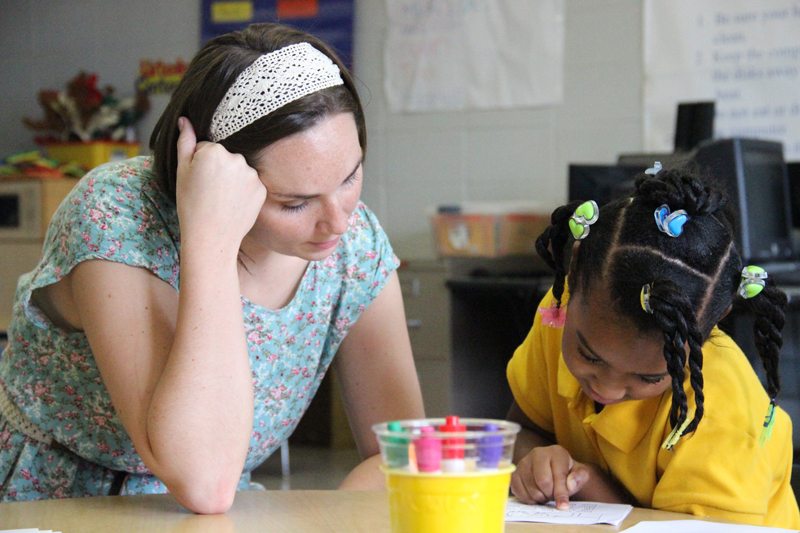
This story was produced by?The Hechinger Report, a nonprofit, nonpartisan news outlet based at Teachers College, Columbia University. Rethink Mississippi has partnered with The Hechinger Report to provide news and analysis about education in Mississippi.?
[hr]
More than 40 percent of students in Mississippi are not ready for kindergarten, according to the results of a survey released in early November.

Mississippi KIDS COUNT, a?project?of the Family and Children Research Unit at Mississippi State University?s Social Science Research Center?surveyed kindergarten teachers?across the state to assess their perspectives on student readiness.
About 25 percent of the state?s kindergarten teachers responded, and indicated that 41 percent of their students were unable to identify colors and shapes or hold a crayon when they started school. Seventy-one percent of teachers had at least one student in their classroom who was repeating kindergarten.
The results come at a time of?increased focus?on quality early childhood education, which advocates say could better prepare children for school. Earlier this year, the Obama Administration proposed a?$75 billion program?that would provide pre-k to every low and moderate-income four-year-old in America.
Nationally,?less than half of poor children?are deemed ready for school at age five, compared to 75 percent of?their moderate and high-income peers. A growing body of?research?has found that high quality pre-k programs can boost reading and math scores, and teach children important classroom skills like how to?raise their hand and pay attention. Some critics have balked at spending more money on pre-k programs that they say may not have long-term benefits. A?controversial Head Start study released in December?found that by the end of first grade, positive effects of the pre-k program had mostly disappeared.
In April, Mississippi became the last state in the South to?pass a law to fund pre-k. Currently, about?50 percent?of the state?s three and four-year-olds are not enrolled in a preschool program. Mississippi?s law allows for $3 million in matching funds for preschool programs that meet specific quality standards, such as serving at least one meal a day that meets national dietary standards, hiring qualified teachers, and adopting a research based curriculum. As of late October?72 programs?have expressed interest in applying for the money.
The survey?s release coincided with the Monday release of a?national report?from the Annie E. Casey Foundation, a nonprofit child advocacy organization, that compared the early childhood experiences of children across the nation. Sixty-three percent of children under eight in Mississippi live in low-income households, compared to the national average of 48 percent. While 54 percent of children under five in North Carolina receive health screenings that can identify developmental, behavioral, and social delays, only 18 percent of children in Mississippi receive such screenings.
[hr]
The Hechinger Report?is currently examining obstacles, consequences and?potential solutions?to the state’s lagging education performance. Read more of the?Mississippi Learning series.?




Pingback: Three New Year’s Resolutions for Mississippi | Rethink Mississippi
While I greatly appreciate the opinions of these teachers, let?s not forget they are that, opinions. I applaud such a qualitative study versus no study at all, yet I am disheartened to see Kids Count, The Hechinger Report and Rethink Mississippi take this information and present it in such a manner as fact. Did anyone bother to request test data of any of the kids in current pre-school settings? Did anyone contact the largest pre-school program in the state, Head Start? I find it funny that teachers had no problem stating they and their schools were built and ready for Kindergarten education in the same study. It seems as push the buck kind of study.
It?s upsetting that Kids Count and others have started to go in with preconceived negative purposes with these studies. I am proud to see at least one solution given in the research. I agree that Pre-K teachers and K teachers should be working together to discuss curriculum and real transitions. Yet, did we ask how many school administrations had structures and plans that allow for this to occur?
If we want additional funding for Pre-K programs, why not support the structure that is already there instead of taking additional state dollars that are not there. If we want to see where funding is lacking we may want to reconsider the school districts (and amount of administrations) we have throughout the state.